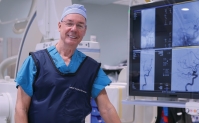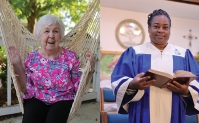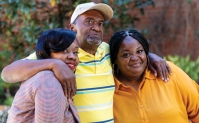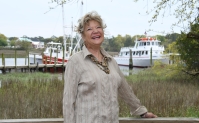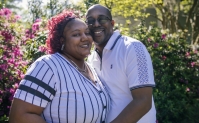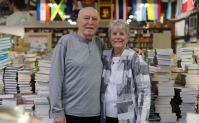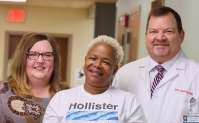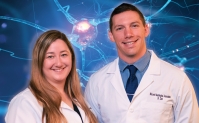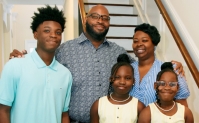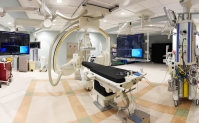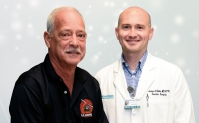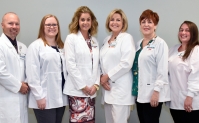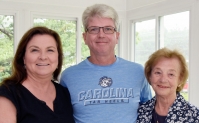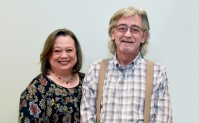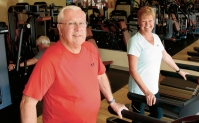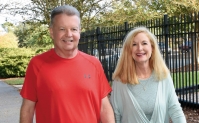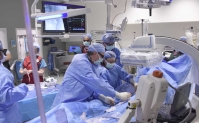You Inspire The Best in Us.
With the many advances in care and treatments, today’s patients have more and more reasons to expect the best outcomes. Here are the incredible stories of our patients and their journeys. Click on a thumbnail and scroll down to view each story.

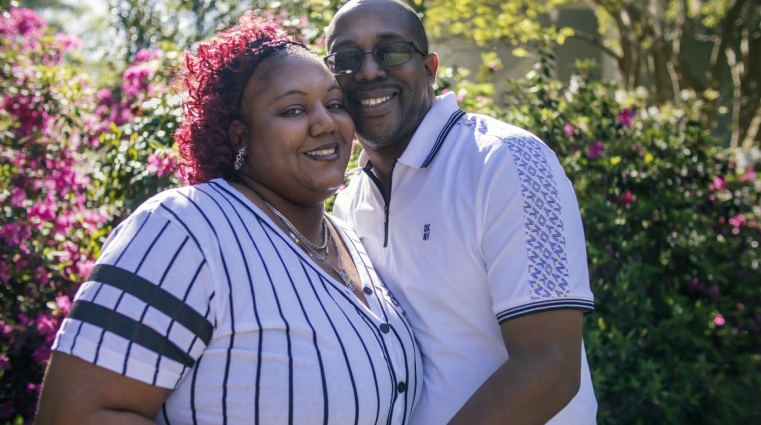
McLeod ER Acted FAST to Reverse My Stroke
By Tammy White
Feeling congested, Shyneta Baker needed a sick day from her busy career as a property manager in Bennettsville. When she began having trouble breathing Shyneta went to urgent care. There they found her blood pressure very elevated, and she began experiencing chest pain. Urgent Care gave Shyneta a nitroglycerin pill for the pain and called EMS to transport her to McLeod Health Dillon.
While en route to the hospital Shyneta suddenly lost vision in her left eye, her left side went numb, and she was unable to speak. Shyneta was experiencing a stroke.
“I was scared,” said Shyneta. “I did not know what was happening to me. I wanted to talk to the paramedic but could not.”
“Because a stroke is a result of a blood clot blocking blood flow it is not unusual for patients to complain of chest pain with a stroke,” said Dr. Rudolf Jokl, Medical Director of Stroke Services at McLeod Health Dillon.
It is important to know which type of stroke it is to be able to determine a treatment plan. Prior to treatment, a head CT scan is performed to help distinguish between Ischemic stroke or a Hemorrhagic stroke. Shyneta’s scan at McLeod Health Dillon indicated she was having an Ischemic stroke.
The main treatment for an Ischemic stroke is a thrombolytic medication called Tenecteplase, which breaks up clots. Guidelines from the American Heart Association and American Stroke Association state that these medications are most effective when given within three hours and in some cases four and a half hours from the start of the stroke.
McLeod Health Dillon is certified as an Acute Stroke Ready hospital by DNV GL Healthcare.
The certification acknowledges to the community that the hospital has the resources and commitment to provide the best possible stroke care. It is a combination of the right equipment, personnel, and training to quickly assess and treat strokes. An Acute Stroke Ready hospital has the ability to administer intravenous thrombolytic therapy also known as Tenecteplase. This is an FDA-approved treatment for strokes that are caused by a blood clot that is interrupting blood flow to a region of the brain.
The Acute Stroke Ready Certification is based on standards set forth by the Brain Attack Coalition and the American Stroke Association and affirms that the medical center addresses the full spectrum of stroke care – diagnosis, treatment, rehabilitation, and education – and establishes clear metrics to evaluate outcomes.
Acute Stroke Ready hospitals are designed to be part of a larger stroke system of care. For any stroke patient needing ongoing care, after the initial treatment, that care would be provided within the McLeod Health system at the Primary Stroke Center, McLeod Regional Medical Center in Florence.
Thanks to the thrombolytic medication, Shyneta’s vision returned but she was also having issues moving her left leg. Physical therapy was required to assist with her recovery. Shyneta was transferred to McLeod Regional Medical Center for her ongoing stroke care.
“I worked with physical therapy, but I also did exercises on my own,” said Shyneta. “I wanted to get my strength and my ability back. I did not want to be dependent on any device like a walker or cane, which I am happy to say I am not.”
Shyneta’s elevated blood pressure led to her stroke. She was on blood pressure medications that were not sufficiently controlling her blood pressure, but she has since worked with her primary care provider to get it back under control.
“I am grateful to the staff at McLeod Health Dillon,” said Shyneta. “The clot-busting medication acted like a reversal for my stroke symptoms. At 37, I thought I was too young to have a stroke, but the reality is I know people younger than myself who have experienced a heart attack or stroke. Stroke and heart attacks have no age limits.
“When you need medical attention my advice is do not wait. If I had been home by myself when I had my stroke it could have been a different outcome for me. Fortunately, I am fully recovered and spending each beautiful day with my husband Ash.”
High school sweethearts, Shyneta and Ash recently celebrated their ten-year wedding anniversary.
-
McLEOD REGIONAL MEDICAL CENTER FLORENCE
843-777-2000 -
McLEOD DARLINGTON
843-777-1100 -
McLEOD DILLON
843-774-4111 -
McLEOD LORIS
843-716-7000 -
McLEOD SEACOAST
843-390-8100 -
McLEOD CHERAW
843-537-7881 -
McLEOD CLARENDON
803-433-3000



-
McLEOD REGIONAL MEDICAL CENTER FLORENCE
843-777-2000 -
McLEOD DARLINGTON
843-777-1100 -
McLEOD DILLON
843-774-4111 -
McLEOD LORIS
843-716-7000 -
McLEOD SEACOAST
843-390-8100 -
McLEOD CHERAW
843-537-7881 -
McLEOD CLARENDON
803-433-3000
 Find a Doctor
Find a Doctor  Locations
Locations  Services
Services 